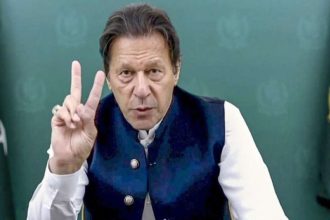Pakistan is contemplating importing crude oil from the United States for the first time to help address its trade imbalance with the US. Currently, Pakistan faces tariffs due to a $3 billion trade surplus.
As a Pakistani delegation prepares to visit Washington for discussions on tariff relief, this proposal could potentially alter Pakistan’s energy and trade strategies.
Under President Donald Trump’s administration, the US applies a 10% baseline tariff on all imports. Countries with large trade surpluses, like Pakistan, face higher duties. Currently, Pakistan is subject to a 29% tariff because of its $3 billion surplus. However, a recent government announcement states these tariffs are paused for 90 days, offering a chance to negotiate relief.
Pakistan is exploring importing up to $1 billion in US crude oil, equal to its current oil and refined product imports. In 2024, the country imported 137,000 barrels per day of crude oil worth $5.1 billion, mainly from Middle Eastern nations like Saudi Arabia and the UAE. A government source noted, “It is under active consideration… but the Prime Minister has to approve it.”
Diversifying oil sources could reduce Pakistan’s reliance on Middle Eastern suppliers. The Saudi Fund for Development (SFD) recently provided a $1.2 billion oil financing facility for 2024, adding to $6.7 billion in support since 2019. Importing US oil might strengthen economic ties with the US while addressing trade tensions.
Other nations are also using energy imports to ease trade imbalances:
- India: a state-owned firm, GAIL, recently bid for a stake in a US LNG project.
- Japan, South Korea, and Taiwan: These countries are investing in Alaska’s LNG infrastructure.
These examples show how energy deals can serve as tools for balancing trade and reducing tariffs, a strategy Pakistan may now adopt.
The proposal remains in its early stages, pending approval from Pakistan’s Prime Minister. The petroleum ministry has not yet commented, so further discussion is needed. Challenges include:
- Logistics: Shifting from Middle Eastern to US oil could require new shipping and refining adjustments.
- Politics: Successful negotiations with the US and internal consensus are critical.
Pakistan’s plan to import US crude oil is a strategic step to offset its $3 billion trade surplus and reduce tariffs. If approved, this could diversify its energy supply and bolster US-Pakistan relations. While logistical and political hurdles remain, the upcoming Washington talks could shape the future of this initiative.






